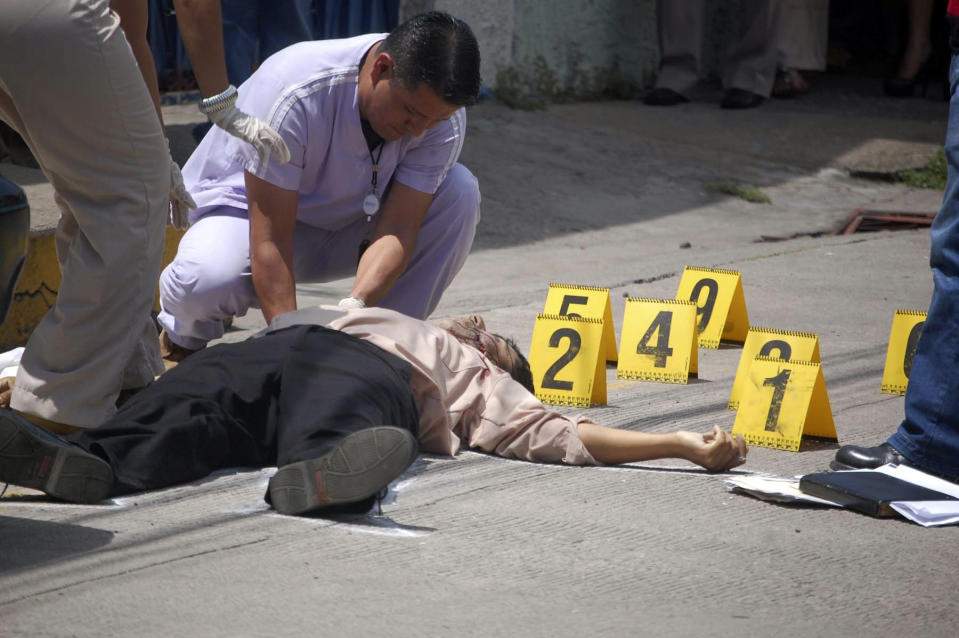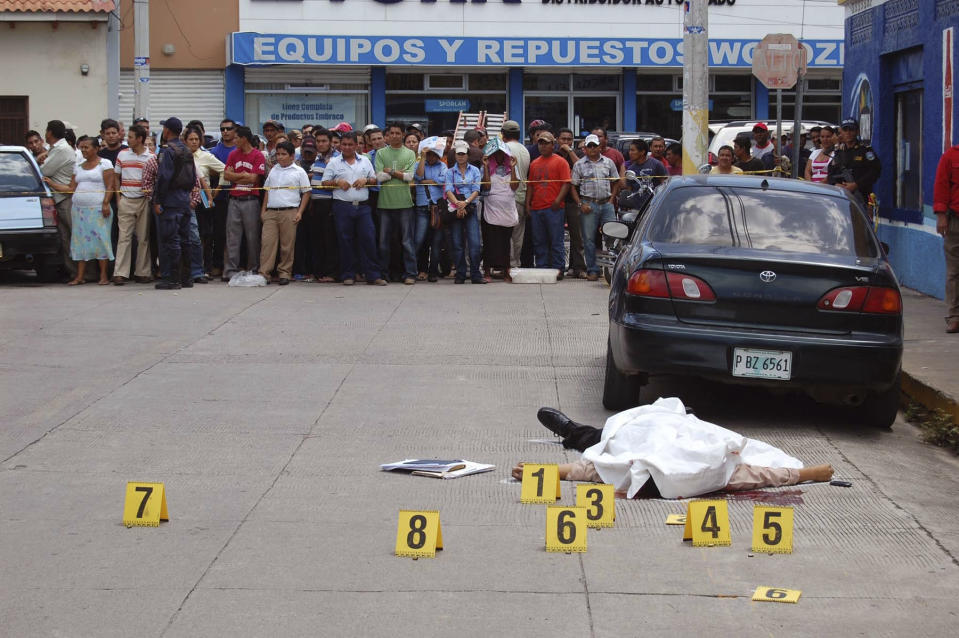Slain Honduran lawyer complained of death threats
TEGUCIGALPA, Honduras (AP) — A prominent Honduran human rights lawyer gunned down after a weekend wedding had long complained about death threats, including in documents filed last year seeking protection from a powerful billionaire landowner.
Antonio Trejo Cabrera, 41, who died early Sunday after being ambushed by gunmen, was a lawyer for three peasant cooperatives in the Bajo Aguan, a fertile farming area plagued by violent conflicts between agrarian organizations and land owners. The most prominent is Dinant Corporation owned by Miguel Facusse, one of Honduras' richest men. Thousands of once-landless workers hold about 12,000 acres (5,000 hectares) of plantations they seized from Dinant.
Trejo, who was shot six times after attending a wedding, reported threats in June 2011, according to documents obtained by The Associated Press, including photocopies of a BlackBerry message he received saying: "Trejo, you dog, you have 48 hours to get out or you're dead."
The complaint was filed by Honduras' Committee in Defense of Human Rights against Facusse and two other people who couldn't be reached for comment. It asks the Inter-American Commission on Human Rights for protection for Trejo and his family.
The commission in Washington said late Monday it couldn't confirm the complaint because proceedings are confidential.
Before his death, Trejo had publicly said that if he were killed, Facusse would be responsible.
In a statement received by The Associated Press late Monday, Facusse denied any role, direct or indirect, in Trejo's murder.
"I deeply lament the death of the lawyer Trejo Cabrera, as I lament the loss of any human life, independent of any differences I might have had with him on the legal plane on the issue of land in Aguan," Facusse said.
The U.S. State Department lamented Trejo's death, and the U.S. embassy said it is helping Honduran authorities investigate the murder.
"Mr. Trejo Cabrera worked tirelessly to resolve the tragic and complex land conflict in Honduras's Bajo Aguan, relying on legal challenges and negotiations in a region where disputes are too often settled through violence," State Department spokeswoman Victoria Nuland said in a statement. "The United States is dedicated to working with the Government of Honduras to ensure that those responsible for this reprehensible act are brought to justice, and through the Special Victims Task Force, is assisting the Honduran investigation."
Trejo's family was visibly upset with authorities, including an American woman who accompanied them to question the family after Trejo's memorial on Monday. The woman wouldn't identify herself, adding, "This is an active police investigation and this is the only thing I am going to say."
His family said Trejo's request for protection had been ignored.
"Nobody cared," said his brother, Rigoberto Trejo, 35.
"We asked the police and the prosecutor's office for protection and they never responded," added Enrique Flores Lanza, secretary of the board of directors for the Honduran Bar Association.
Honduras, considered to be one of the world's most dangerous countries, is plagued by assassinations of journalists, lawyers and public officials, very few of which are ever prosecuted. No arrests have been made in Trejo's killing.
On Monday, authorities confirmed that human rights prosecutor Eduardo Diaz Madariaga was killed in Choluteca, 84 miles (135 kilometers) south of the capital.
More than 60 people, most of them farmers, some of them Facusse employees, have been killed over the past three years in the conflict over the Bajo Aguan Valley, according to activists, police and Facusse's company.
Trejo had recently helped farmers gain legal rights to several plantations.
Trejo had also helped prepare motions declaring unconstitutional a proposal by the Honduran government and a U.S. company, MGK Group, to build three privately run cities with their own police, laws and tax systems.
Just hours before his murder, Trejo had participated in a televised debate in which he accused congressional leaders of using the private city projects to raise campaign funds.
MGK director Michael Strong said the company is "horrified" by Trejo's killing.
"We believe that Antonio Trejo, had he lived long enough to get to know us, would have concluded that our approach is 100 percent beneficial to Honduras and Hondurans. We are saddened for his family and understand what a tragedy this is for trust and goodwill in Honduras," Strong said in a statement to The Associated Press.
Trejo was to travel to Washington in October to participate in hearings on the Bajo Aguan situation at the Inter-American Commission on Human Rights, said Annie Bird, co-director of Rights Action.
"Authorities need to act swiftly to bring to justice those responsible for Trejo's murder, and send a clear message that attacks on human rights defenders will be dealt with firmly," said José Miguel Vivanco, Americas director at Human Rights Watch.




